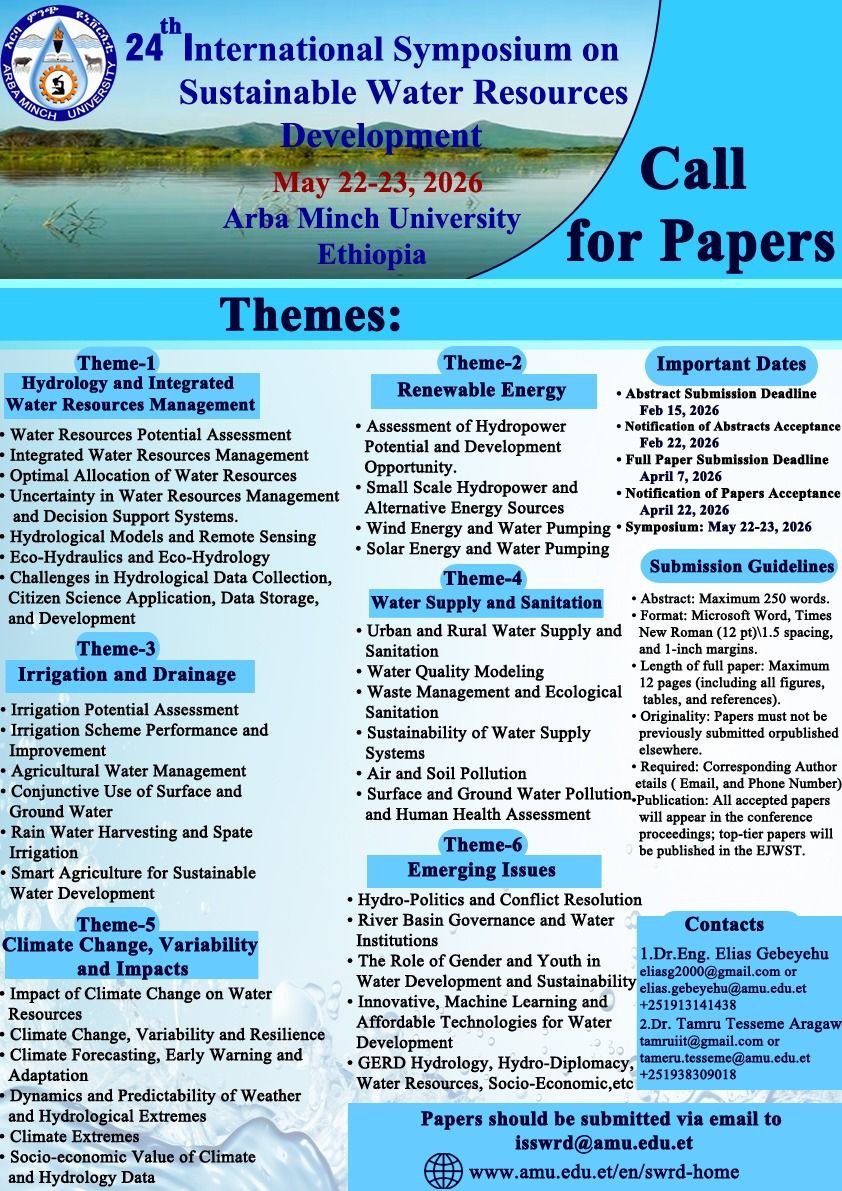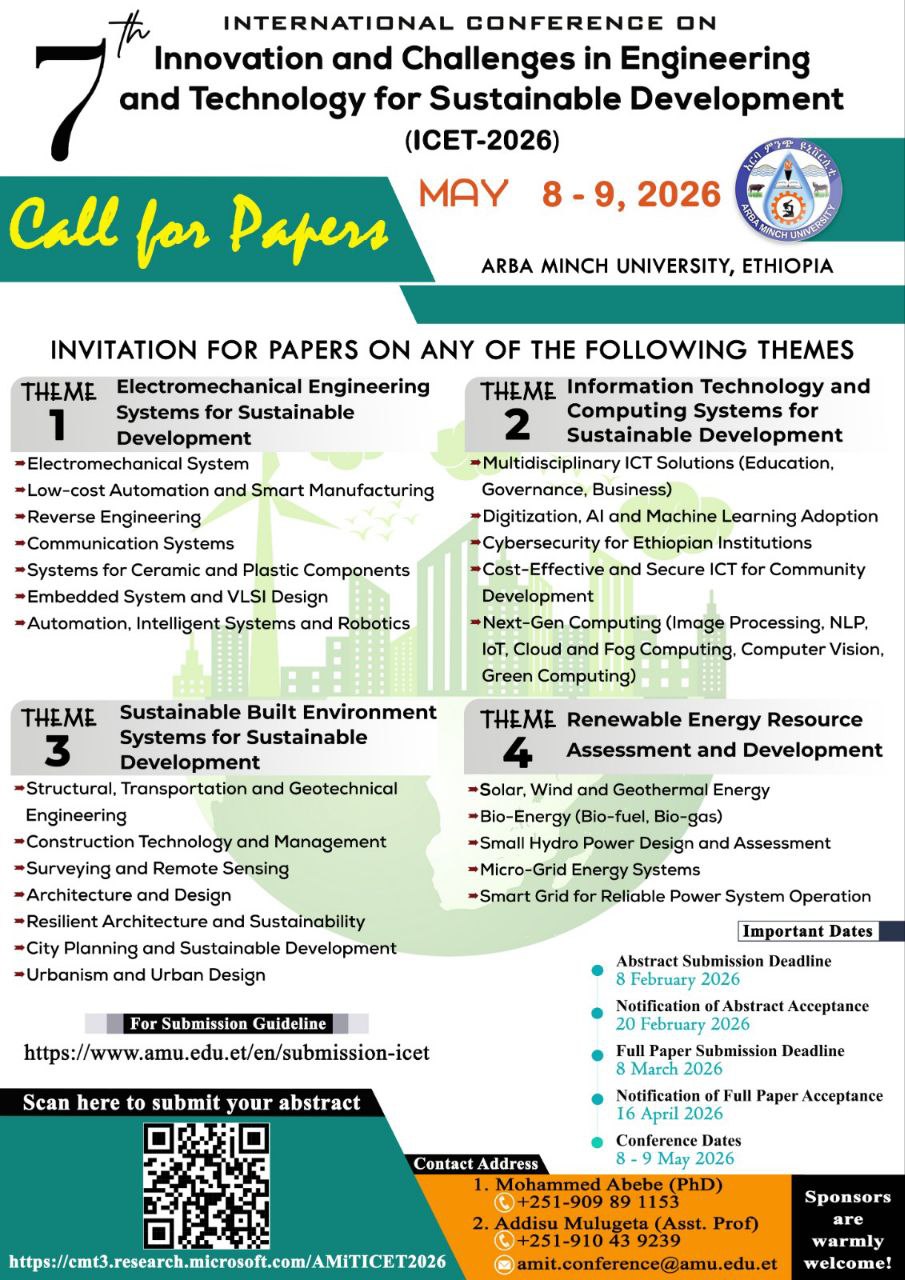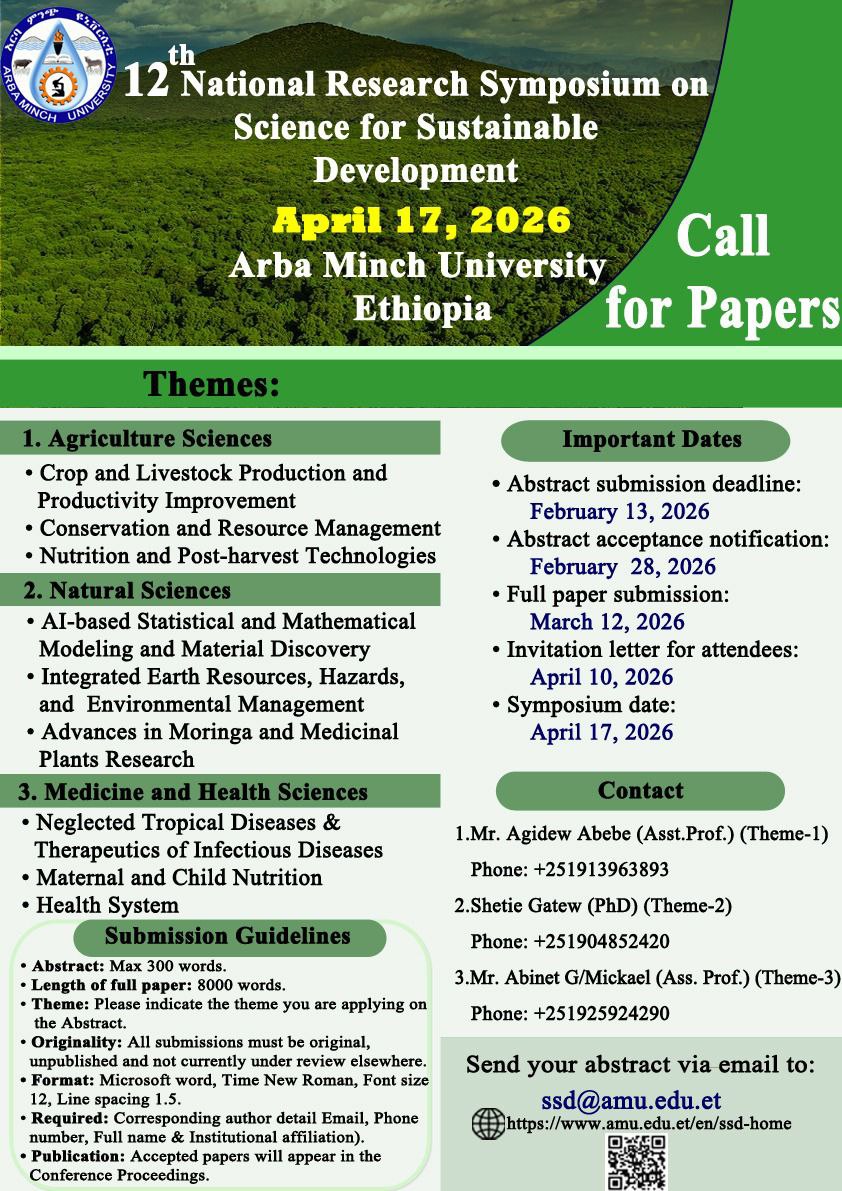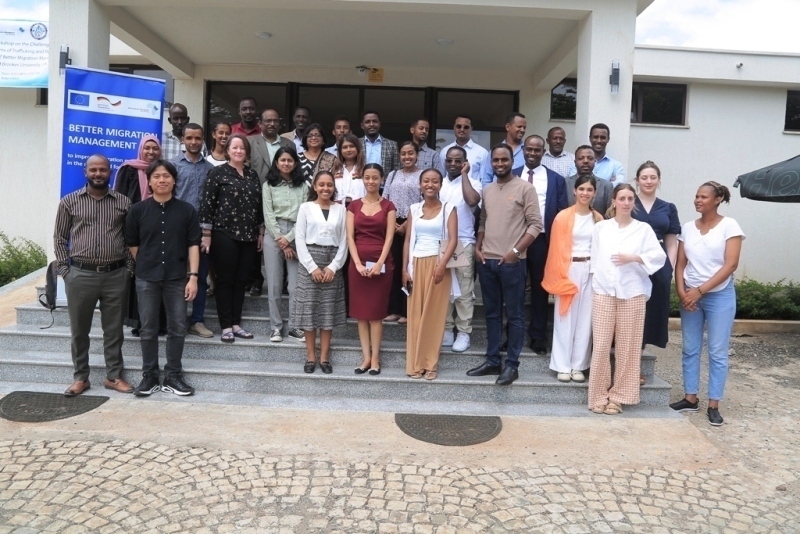Arba Minch University/AMU/ along with German Cooperation/GIZ/, Better Migration Management Horn of Africa/BMM/ and Oxford Brookes University/OBU/ UK, hosted Experience Sharing Workshop on the challenges faced by Ethiopian migrants, victims of trafficking, Internal Displaced People (IDPs) and Returnees at Arba Minch, Ethiopia, in May, 2024. Click here to see more photos.
Dr. Sam Ponniah, Associate professor of Human Rights Law at AMU, in his welcoming and introductory speech said that the workshop was organized to strengthen institutional relations with partners. He also noted that students will gain valuable experiences from the workshop which helps them to do their theses.
Dr. Abel Yonas, Assistant Professor of Sociology at Wachemo University, presenting his finding on “The Nature and Patterns of International Migration of Ethiopia,” said, migration is deep rooted in areas like Hadya and Kambata. According to him, migration to Europe from Ethiopia has become so difficult due to the conflict in Sudan and Gaza. Furthermore, he explained that we should work collaboratively on awareness creation of nation building regarding migration to bring significant change.
Ms. Metsnanat Sahle, Senior Program Manager of British Council and Caleb and program coordinator of Emmanuel Development Association, pointing out her findings on “Intervention of the British Council in supporting community platforms, challenges and recommendation in Southern Ethiopia,” said, our organization recently works in Ethiopia, Sudan, Kenya and Uganda. Our strategic focus is empowering younger generation on awareness creation about the effect of migration in host nations, migrant affected groups and child trafficking and followed human based approach, she remarked. She also stated that, in Ethiopia, it is necessary to build sustainable economic development and revise policies to overcome migration.
Mrs. Mohbuba Choudhury, Protection Advisor at BMM & her colleague Ms. Israel Degu, Junior Program Advisor at BMM, dwelling on their findings on “Intervention of BMM and sustainable reintegration solutions” said that their organization focuses on reducing challenges created by migration and economic support of returnees. We also assess economic baseline of returnees and give recommendation to government to revise its economic policies to create comfortable situation and focus on a larger businesses rather than small scale to improve lives of returnees and reducing migration, she said.
Mr. Firaol Ofga from Ethiopian Human Right Commission /EHRC/, presenting his research results on the Protection of Migrants and Internal Displaced Peoples/IDPs/ said that the commission works in terms of national legal framework on capacity building to government and non-government actors on human right violation with focus on thematic areas such as civil and political rights, social and economic rights, and so on. Further, our government should work jointly with partners to end up the irregular channels of migration to save lives of migrants, he added.
Mr. Ephrem Tadesse, Protection Officer at United Nation High Commission for Refugees/UNHCR/, on “Intervention of UNHCR on the Protection of Internal Displaced people (IDPs)” said that the only difference between IDPs and refugees is artificial boundaries and UNHCR provides support not only for refugees but also for internally displaced people due to conflict. The support given by the organization reaches the IDP beneficiaries through their bank accounts by the sub clusters organized at national, regional and local levels, he noted. Further explaining, he said, IDPs are Ethiopian citizens and government has full responsibility in terms of protection and UNHCR makes effort to support emergency cases only.
Dr. Supriya, Director of CENDEP Oxford Brookes University, with her team presenting on “Findings of Joint Field Research by OBU & AMU”, said that their research is focused on four areas: human right and post migration, conflict transformation and resilience peace building, inclusive recognized development, and shelter, housing and common culture. She recommended that local government and other partners should focus on building infrastructure like schools, health centers, returning migrants to their normal habitat, and supporting displaced people by economy using different mechanisms.
The participants raised different queries and comments at the end of each presentation and feedbacks were given by presenters and coordinators. Researchers from different Universities, Institutions and Organizations in Ethiopia and abroad participated; AMU school of law staff members, research and academic staff, and graduate students from Oxford Brookes University; officials from Gardulla and Konso zones were in attendance.
Arba Minch University
The Center of Bright Future!
For more Information Follow us on:-
Website - https://www.amu.edu.et/
Telegram - https://t.me/arbaminch_university
Facebook - https://www.facebook.com/ArbaMinchUniversityCAD/
YouTube - https://www.youtube.com/channel/UCOO_nclhMo8M3r74OyPBlVA
Communication Affairs Directorate





